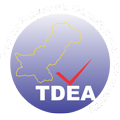Tanzeela Qambrani was elected chairman of the Pakistan Peoples Party Parliamentarian (PPPP) women’s branch in Matli in 2017 and immediately she was met with a barrage of criticism in return; some even from members of the same political party. “These people clean our children’s shit and you want them to run us?” she quotes as one of the many things she had to hear. In 2018, Tanzeela was sworn into the Provincial Assembly of Sindh as a candidate of her party which was deemed a historic moment in Pakistani history. But even then, shortly after she was sworn in, a member of the Sindh parliament resigned shortly after. But why was Tanzeela being targeted with no evident motive or reason? The answer lies in her ancestry- Tanzeela belongs to the Sheedi community, the African minority group who trace their ancestry to slaves brought from East Africa to South Asia by Arab merchants between the 8th and 19th centuries.
Nazia (28) is a Sheedi woman, residing in Karachi, Sindh. She has an undergraduate degree and previously worked as a teacher in a local school in her area. She left her job and is now pursuing a course in filmmaking; something she believes can help her community come to the forefront. Nazia narrates her story as someone who did not have to face the same discrimination as other members of her community. “I don’t think my experience was bad, yes there were instances where I was made fun of because of my facial features, but it wasn’t too bad. I have grown into it; I think it has helped me embrace my identity even more,” she says.
Being of African descent, the Sheedi community have predominately Afro features, that to some are a source of culture shock while for others a source of humor. But it does not end here, instead, it transmutes into far more serious discriminatory practices.
“I was mocked when I was younger, in school, they would call me names and always try and touch my hair. It was a source of entertainment for them, all I could do was ignore them. I am not the only one, all of us [the Sheedi community] have no other option but to tolerate it,” she says.
The issue that lies at hand is that the Sheedi community is discriminated against based solely on prejudiced social standards. Living a reclusive life blighted by institutional prejudice, relying on daily hard labor for a living, the Sheedi remain outcasts in Pakistan after dwelling along the Arabian Ocean’s coasts for centuries. Many are compelled to live in ghetto towns, where the drug and weapons trade thrives, and possibilities for economic, social, and political advancement are shackled. This has enslaved the community in a cycle of poverty and ignorance, leading to shaming and branding as savages. Mocked, berated, and shamed, the Sheedi continue to live on in Pakistan; chained to a life of ostracism.
But Nazia quotes her experience differently, owing it largely to her father and the work he has done for the Sheedi community.
“My father, Muhammad Yaqoob, has dedicated his life to helping the members of his community; whether it be on social or political fronts. He has set up a small-scale, communal organization for the Sheedi members to record their concerns or grievances. I think his work is what has earned me my respect, people look at me differently because of my father,” she adds.
Nazia says that she earned people’s respect also because she was able to detach herself from her community’s stigmatized past. “People also respect me because I didn’t sit idly at home, I worked, I earned for myself, I got an undergraduate degree when there were not many even pursuing their education. I am treated differently because I chose to be different,” she says.
Nazia still finds the racial prejudice, even if it is not consistently happening to her, against the Sheedi as unacceptable. She says people need to understand that we have been here just as long as the others, why is acceptance still so hard? Nazia suggests that there needs to be a triangulation of stakeholders, that is the people, the government, and civil society organizations. First, she says, the people need to educate themselves regarding different minorities in Pakistan; each with a unique culture and history. Second, the government should bring the Sheedi community to the forefront by adopting a more inclusive and politically correct approach Legislative measures to cover the Sheedi community with the social protection net, including minority quotas specified for the community, which in cases is rendered useless or given away to more influential communities. Racial injustice, on an institutionalized level, also needs to be talked about on a political level- ensuring the progress of the Sheedi community alongside all others. Third, and lastly, CSOs must act as a bridge between the Sheedi members and all other institutions, leveraging their opinions and concerns to relevant stakeholders.
“Black is beautiful,” says Nazia, “and there should be no bias against it. We all are beautiful in our ways and all colors and features should be regarded as equals.”














